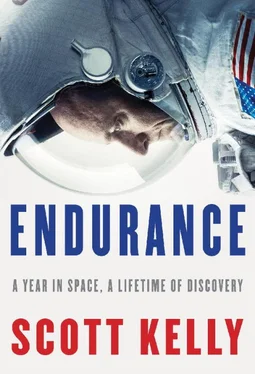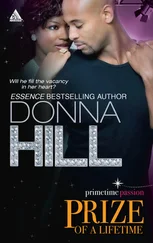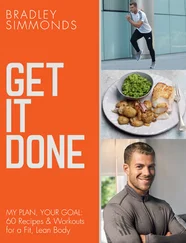—
I WAKE UP early in the morning, six a.m., and float out of my CQ, through the lab and Node 1, turning on lights as I go. I turn right, into Node 3, where I go into the WHC. I don’t start it up, though—today is a science sample collection day. The process of urination is going to be even more complicated than usual. I grab a urine collection bag, clear plastic with a condom attached to one end. I put the condom on, then wrap it in mesh bandages to prevent leaks. As I urinate, I have to push with enough force to unseat the valve on the bag to allow the urine to flow in—without the valve there, of course, it would just come floating back out. But it’s hard to push with enough force to open the valve without pushing so hard the urine leaks from the condom—and this is exactly what happens. Urine soaks the gauze, then quickly forms droplets that float out to the walls. I’ll have to clean them up later. After I finish peeing, I remove the condom while trying not to liberate more urine. I use sample tubes with plungers to draw out three samples, initial them, mark them with the date and time, and scan their barcodes into the system. Then I head down to the Japanese module to put the tubes into one of the freezers. I will go through this process again and again, every time I urinate for the next twenty-four hours.
With the pee sample done, I head into Columbus for my blood draw. Like most astronauts on ISS, I know how to draw my own blood. At first I told the instructors in Houston that I wouldn’t be able to stick a needle in my own vein, but with some help I agreed to give it a try and quickly got the hang of it. Gennady joins me in Columbus to help, right on time, though I told him last night he didn’t need to. I clean the site on my right arm, which I’ve found to be a better vein. Using my left hand, I pierce the skin and slip the needle in. There is a brief flash of red in the tube holder, an indication that I hit the vein, but when I connect the vacuum tube, there’s no blood. I must have gone right through. Having ruined that one for today, I will have to try again on the left side. Because this is my only remaining arm, I suggest Gennady give it a try for me.
Gennady grabs another butterfly needle and connects it to the tube holder. After cleaning the site on my left arm, he takes aim and slides the needle perfectly into the vein. But the needle isn’t properly connected to the tube holder, so blood escapes, flowing out into globs in the air that wobble and then resolve themselves into crimson spheres, traveling out in every direction. Gennady quickly reseats the connection while I reach out to grab some of the blood spheres with my hand before they can float farther away. The ones I missed I’ll have to track down and clean up later. Luckily, I’m mostly alone on the U.S. segment, so no one will encounter a gory surprise before I can get to it.
Gennady changes out the tubes over and over until he’s drawn ten tubes of blood. I thank him for his help, and he goes back to the service module to have breakfast. I put the tubes in the centrifuge for half an hour, then put them in the freezer along with the other samples.
Later in the day, I will take a fecal sample; tomorrow, saliva and skin. I will go through this whole process every few weeks for the rest of the year.
Within the past week I’ve developed a badly infected ingrown toenail on my left big toe. Almost every moment of the day, unless I’m sleeping, I have one or both feet hooked around a handrail to hold me steady, so big toes are extremely important. I can’t afford for this guy to be out of commission. I’m treating it with topical antibiotics—we have a full pharmacy up here—and monitoring it closely.
The CO 2is much better now that I’m the only one exhaling on this side of the ISS. My headaches and congestion have largely cleared up, and I notice a difference in my mood and cognition. I’m appreciating this break from the symptoms while I can. At the same time, I’m concerned because the ground will probably act as though there is no problem now. Then the next crew will get here and we will start the whole cycle all over again.
One of the nice things about living in space is that exercise is part of your job, not something you have to fit in before or after work. (Of course, that’s also one of the bad things about it: there are no excuses.) If I don’t exercise six days a week for at least a couple of hours a day, my bones will lose significant mass—1 percent each month. We’ve had two astronauts break their hips after long-duration spaceflights, and since the risk of death after hip fracture increases with age, bone loss is one of the biggest dangers my year in space will pose to my future health. Even with all this exercise, I will lose some bone mass, and it’s suspected that bone structure changes permanently after long-term spaceflight (this is one of the many medical questions Misha’s and my year will help to answer). Our bodies are smart about getting rid of what’s not needed, and my body has started to notice that my bones are not needed in zero gravity. Not having to support our weight, we lose muscle as well. Sometimes I reflect that future generations may live their whole lives in space, and they won’t need their bones at all. They will be able to live as invertebrates. But I plan to return to Earth, so I must work out six days a week.
When it’s workout time on my schedule, I float into the PMM, a windowless module we use as a large closet, to change into shorts, socks, and a shirt. The PMM always reminds me of my grandparents’ basement—it’s dark, dingy, and has random stuff everywhere. My workout clothes are getting a bit fragrant because I’ve been using them for a couple of weeks—there is no laundry up here, so we wear clothes for as long as we can stand, then throw them out. I struggle to find something to hook my feet onto while I change. The clothes are still moist from yesterday’s exercise, making changing unpleasant.
I head into Node 3 and make my way to the treadmill. On the ceiling is a strap that holds a pair of shoes, a harness, and a heart monitor for each of us. I grab my running shoes and put them on, then I step onto the treadmill, which is mounted on the “wall” with respect to most of the other equipment.
I put my harness on, buckle it at the waist and chest, and clip into the bungee system that’s attached to the treadmill. This holds me in place as I run—without the harness, I would go flying off the treadmill with my first step. We can adjust the tension to control the perceived weight at which we’re running, though we can’t run at our normal body weight, as the pressure on our hips and shoulders would be too painful. I set up the laptop in front of me and start an episode of Game of Thrones. I deliberately avoided watching the series when it first aired and people were talking about it because I knew I would need some good escapist entertainment this year. Now I’m watching the whole series for the second time.
In some ways our treadmill is like the one you might find in a gym on Earth, but it’s mounted into its own unique vibration isolation system. The forces created by the runner pounding away could be surprisingly dangerous—an oscillation at the wrong frequency could tear the space station apart. On Mir, Russian mission control once had to ask American astronaut Shannon Lucid to run at a different pace or risk damaging the space station. On his first flight, cosmonaut Oleg Kononenko, who will join us up here soon along with Kjell and Kimiya, created a potentially dangerous oscillation just by absentmindedly floating up and down a few inches, his feet gently pushing against the floor and a bungee cord.
I control the treadmill using software on the laptop, starting off slowly then gradually ramping up. I enjoy the daily exercise, but it’s hard on my joints. Some days the pain in my knees and feet is almost unbearable, though today it’s not too bad. I ramp up to my maximum speed. When I sweat, the liquid builds up on my bare head like water on a newly waxed car. I wipe it away with my two-week-old sweat towel. Once in a while other people come floating through, positioned perpendicular to me. It’s hard to sneak by the person on the treadmill without distracting them or, worse, hitting or kicking them, especially for people who are new on station. It takes some getting used to, seeing someone running on the wall.
Читать дальше












